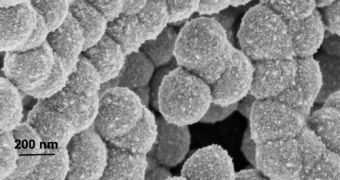Biodiesel is one of the green alternatives and US production of this fuel is at an all-time high, with new biodiesel plants being constructed in record number. However, there is one problem, the fact that this process is still costly, takes a lot of time and produces toxic byproducts.
A new, revolutionary catalyst could greatly improve this production process, making it cheaper and less toxic while decreasing the total production time, according to Victor Lin, a chemistry professor at Iowa State University.
He started his own company, Catilin Inc., which will be responsible for creating marketable applications of the new catalyst, which uses nanospheres to speed up the reactions time.
These nanospheres, as the name suggests, are solid spheres, easier to handle and can be recovered from the chemical mixture and recycled in existing biodiesel plants without major equipment changes.
The new process replaces current catalysts, like sodium methoxide, which is toxic, flammable and corrosive, eliminates a number of production steps, like water washes and acid neutralization which dissolve the sodium methoxide, which can't be used again in a new process.
"This technology could change how biodiesel is produced," said Lin. "This could make production more economical and more environmentally friendly." It can convert vegetable oils or animal fats into biodiesel with much higher efficiency, using acidic catalysts with the nanospheres, which react with the free fatty acids and basic catalysts for the oils.
Lin is planning to build a biodiesel pilot plant, able to produce around 300 gallons of green fuel per day.
Fuel cells that run on biodiesel can produce enough electricity to power a car for almost 200 miles, while cars just using this fuel as a replacement for the common diesel, made of fossil fuel, are almost completely nonpolluting, making them very attractive for people who want to bring their contribution to cleaning up this planet.

 14 DAY TRIAL //
14 DAY TRIAL //